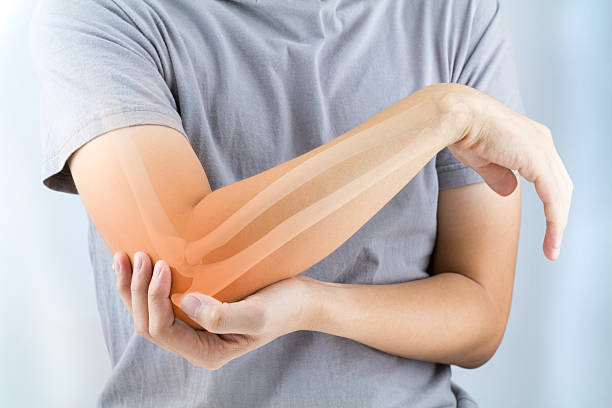Osteoporosis in Young People: Causes, Prevention and Solutions
Introduction
As a young person, I’ve often wondered about the possibility of developing osteoporosis, a condition typically associated with older individuals. After all, bones are often considered strong and resilient during youth. However, recent studies have shown that osteoporosis can indeed occur in young people, affecting bone strength and potentially leading to long-term health issues. In this article, we will delve into the topic of osteoporosis in young individuals, explore its causes, and provide valuable suggestions to prevent its onset. By understanding the risks and taking proactive measures, we can ensure that our bones remain strong and healthy throughout our lives.
1. What is Osteoporosis?
Osteoporosis is a medical condition characterized by a decrease in bone density and quality, making bones brittle and more prone to fractures. It primarily affects older individuals, particularly postmenopausal women. However, osteoporosis can also occur in young people, albeit less commonly.
2. Can Osteoporosis Occur in Young People?
Contrary to common belief, osteoporosis is not exclusive to older age groups. While it is more prevalent among the elderly, certain risk factors and lifestyle choices can contribute to its occurrence in young individuals as well. Factors such as low calcium intake, inadequate physical activity, smoking, excessive alcohol consumption, and a family history of osteoporosis can increase the likelihood of developing the condition at a younger age.
3. Risk Factors for Early-Onset Osteoporosis
Several risk factors contribute to the development of osteoporosis in young people. These include:
– Low calcium intake: A diet lacking in calcium, an essential mineral for bone health, can weaken bones and increase the risk of osteoporosis.
– Sedentary lifestyle: Insufficient physical activity or prolonged periods of inactivity can negatively impact bone strength and density.
– Smoking: Smoking cigarettes can impair bone health by reducing calcium absorption and interfering with bone-building cells.
– Excessive alcohol consumption: Consuming alcohol in large quantities hampers bone formation and leads to decreased bone density.
– Family history: A family history of osteoporosis increases the likelihood of developing the condition, as genetics can play a role in bone density and strength.
– Hormonal imbalances: Certain conditions that disrupt hormone levels, such as hormonal disorders or eating disorders, can contribute to early-onset osteoporosis.
4. Prevention Strategies for Young People
Fortunately, there are effective strategies young individuals can adopt to prevent osteoporosis:
– Ensure a calcium-rich diet: Consuming foods high in calcium, such as dairy products, leafy greens, and fortified foods, helps support optimal bone health.
– Engage in weight-bearing exercises: Participating in weight-bearing activities like walking, jogging, dancing, or weightlifting stimulates bone remodeling and strengthens bones.
– Avoid smoking and excessive alcohol consumption: Quitting smoking and moderating alcohol intake can significantly reduce the risk of developing osteoporosis.
– Maintain a healthy body weight: Being underweight or overweight can negatively impact bone health. Maintaining a healthy weight through a balanced diet and regular exercise is crucial.
– Ensure adequate vitamin D levels: Vitamin D aids in calcium absorption and bone formation. Spending time outdoors, consuming vitamin D-rich foods, or taking supplements can help maintain optimal levels.
– Manage hormonal disorders: If you have a hormonal disorder that may affect bone health, seek medical advice to ensure proper management and minimize the risk of osteoporosis.
5. Importance of Regular Bone Density Tests
Young individuals with risk factors for osteoporosis should consider regular bone density tests. These tests, such as dual-energy X-ray absorptiometry (DXA), can help assess bone density and identify any early signs of decreased bone mass. Early detection allows for timely intervention and the implementation of preventive measures.
Conclusion
While osteoporosis is commonly associated with older individuals, it is crucial to recognize that young people can also be susceptible to this condition. By understanding the risk factors, adopting preventive measures, and seeking medical guidance, we can significantly reduce the chances of developing osteoporosis at a young age. Remember, building strong bones is a lifelong commitment that begins in youth and lays the foundation for healthy aging.
FAQs (Frequently Asked Questions)
Q1: Can osteoporosis occur in teenagers?
A: While osteoporosis is more common in older individuals, it can occur in teenagers, particularly those with certain risk factors. Maintaining a healthy lifestyle and ensuring adequate calcium and vitamin D intake are crucial for teenagers to promote optimal bone health.
Q2: Is osteoporosis reversible in young people?
A: With proper lifestyle modifications, including a calcium-rich diet, regular exercise, and avoiding harmful habits, young individuals with osteoporosis can improve their bone density and reduce the risk of fractures. However, reversing the condition entirely may be challenging, emphasizing the importance of prevention.
Q3: Can hormonal contraceptives increase the risk of osteoporosis in young women?
A: Some studies suggest that certain hormonal contraceptives, such as Depo-Provera (the birth control shot), may slightly increase the risk of bone loss. However, the benefits of using contraceptives often outweigh the potential risks. It is essential for young women to discuss their contraceptive options with healthcare professionals.
Q4: Are there any specific exercises that can help prevent osteoporosis in young people?
A: Engaging in weight-bearing exercises like running, dancing, tennis, and weightlifting can promote bone health and reduce the risk of osteoporosis. Activities that involve impact and resistance help stimulate bone growth and maintain bone density.
Q5: Are there any medications available to treat osteoporosis in young people?
A: Medications for osteoporosis treatment are typically prescribed to older individuals. However, in rare cases where young people have significantly low bone density or other underlying medical conditions, a healthcare professional may consider medication as part of the treatment plan. Consultation with a medical expert is crucial in such cases.




